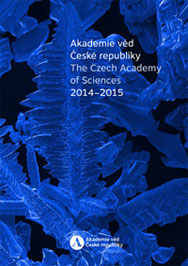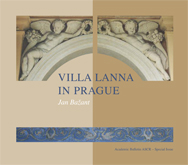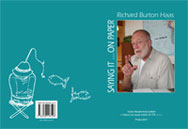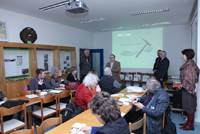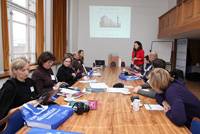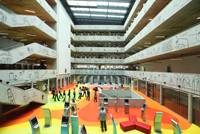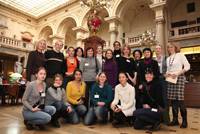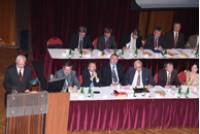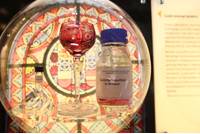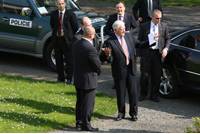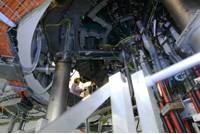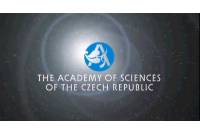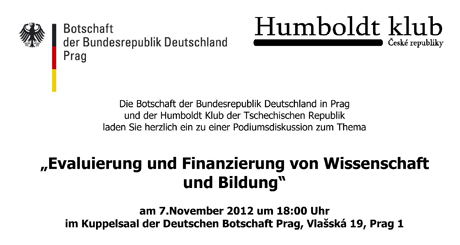Euroscience Open Calls
6 Feb 2013
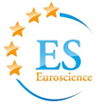 Euroscience is a European non-profit grassroots association open to research professionals, teachers, students, science administrators, policy-makers, etc. and generally to any citizen interested in science and technology and its links with society. It represents not only European scientists of all ages, disciplines and nationalities but also the business sector and public institutions such as universities and research institutes. Euroscience announced the Call for the following events.
Euroscience is a European non-profit grassroots association open to research professionals, teachers, students, science administrators, policy-makers, etc. and generally to any citizen interested in science and technology and its links with society. It represents not only European scientists of all ages, disciplines and nationalities but also the business sector and public institutions such as universities and research institutes. Euroscience announced the Call for the following events.
Hotson: The idea of a fully marketized university system is ludicrous
17 Jan 2013
The Institute of Philosophy of ASCR on November 26–27, 2012 hosted two lectures by Howard Hotson, professor of early modern intellectual history at the University of Oxford and steering committee chair of the Council for the Defence of British Universities. You can read an interview with him. The lecture Understanding the Global University Crisis: The Marketisation of English Higher Education in International Perspective is available on-line.
No title
15 Dec 2012
The European Southern Observatory (ESO) celebrates fifty years since the signing of its founding convention. Over the last half century ESO has become the world’s most productive ground-based astronomical observatory. The signing of the ESO Convention on October, 5, 1962 and the foundation of ESO was the culmination of the dream of leading astronomers from five European countries — Belgium, France, Germany, the Netherlands and Sweden. They had decided to join forces with the primary goal of building a large telescope that would give them access to the magnificent and rich southern sky. Operating three unique and world-class observing sites in Chile (La Silla, Paranal and Chajnantor) ESO has become a leader in the astronomical research community. To celebrate the 50th anniversary, ESO and its partners (including the Czech Republic) are organising many events and public initiatives during 2012.
Nobel laureates meet Presidents of EU institutions to warn against cuts to the EU research budget
15 Nov 2012
A delegation led by Nobel laureates meets the President of the European Parliament Martin Schulz, the President of the European Council Herman Van Rompuy and the President of the European Commission José Manuel Barroso, to urge EU leaders to secure the future budget for research and innovation Horizon 2020. They will hand in an open letter, signed by 44 Nobel laureates and 6 Fields medallists, warning against the dramatic consequences of possible budget cuts in research and innovation. The delegation will also draw attention to a petition “No cuts on research” in support of this cause; to date signed by over 131 000 citizens in Europe and across the globe. These Europe-wide initiatives are launched ahead of the 22-23 November European summit on the overall EU budget for 2014 till 2020.
Statement by the ERC Scientific Council on the Open Letter from 42 Nobel laureates to EU leaders
26 Oct 2012
On 23 October, 42 Nobel laureates and 5 Fields medallists warned against cutting the future EU research budget, in an open letter addressed to EU Heads of State or Government and Presidents of EU institutions. This appeal comes ahead of a special European summit on 22 and 23 November, where leaders will decide the overall EU budget for 2014 till 2020. Researchers from various scientific fields and different parts of Europe immediately responded to the open letter by launching a petition for securing the EU research and innovation budget. The ERC Scientific Council is overwhelmed by the resonance the open letter had in the research community and in the media. The letter was published by over 20 top newspapers across Europe. The online petition has collected over 40,000 signatures in the first day, and the Scientific Council expects that many more researchers will rally to support this call, initiated by the younger generation.
Science and Research evaluation and financing is discussed at the Embassy of Germany
18 Oct 2012
Conference of the Internationale Union of Academies in Prague
16 Oct 2012
The president of the Academy of Sciences of the Czech Republic Jiří Drahoš welcomed the representatives of the Union Académique Internationale on October 7–9, 2012 at Prague villa Lanna. The federation is composed of national and international academies from more than 70 countries working in the field of Humanities and the Social Sciences. Purpose of the federation is to encourage cooperation to advance studies through collaborative research and joint publications in those branches of humanities and social sciences promoted by the Academies and Institutions represented in the UAI which include philology, archeology, history, moral sciences and political sciences. The Academy of Sciences of Czech Republic is represented in UAI by member of the Academy Council Jiří Beneš from the Institute of Philosophy ASCR.
The construction of the Extreme Light Infrastructure launched
10 Oct 2012
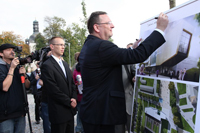 The construction of the ELI Beamlines centre with the world´s most efficient laser for seven billion crowns, most of which will be funded by the European Union, started in Dolní Břežany on 9th October 2012. According to Prime Minister Petr Nečas the project represents a very important stimulation for Czech science, also because it will be the biggest and most important scientific installation in the Czech Lands. The center will focus on research into cancer treatment, medical imaging and diagnosing. The laser will also be used in the development and testing of new materials and the handling of radioactive waste. More information you can find on http://www.eli-beams.eu/about/.
The construction of the ELI Beamlines centre with the world´s most efficient laser for seven billion crowns, most of which will be funded by the European Union, started in Dolní Břežany on 9th October 2012. According to Prime Minister Petr Nečas the project represents a very important stimulation for Czech science, also because it will be the biggest and most important scientific installation in the Czech Lands. The center will focus on research into cancer treatment, medical imaging and diagnosing. The laser will also be used in the development and testing of new materials and the handling of radioactive waste. More information you can find on http://www.eli-beams.eu/about/.
Euroscience Open Forum 2012
16 Sep 2012
The Euroscience Open Forum 2012 took place at the Convention Centre Dublin and it was officially opened by President of Ireland, Michael D. Higgins. More than 500 speakers addressed over 150 science, careers and business to business sessions. The opening ceremony also featured the first keynote address of the conference by Nobel Laureate Jules Hoffmann entitled From Insects to Mammals, reflections on a European journey through basic research on immune defences. Over the four days of the Forum, leading scientists, policy makers, business leaders and the general public from across the world came together to discuss new discoveries and debate the direction that research is taking in the sciences in order to strengthen the links between science and society. The conference covered all of the current major global scientific challenges, including health, food, genetics and climate change.
Comprehensive transcriptome analysis of human ENCODE cells
6 Sep 2012
ENCODE, an international research project led by the National Human Genome Research Institute (NHGRI), has produced and analyzed 1649 data sets designed to annotate functional elements of the entire human genome. Data on transcription starting sites (TSS) contributed by a research team at the RIKEN Omics Science Center provided key anchor points linking the epigenetic status of genes observed at the 5' end directly to their RNA output.




